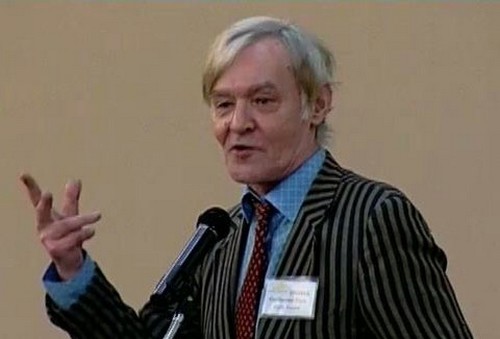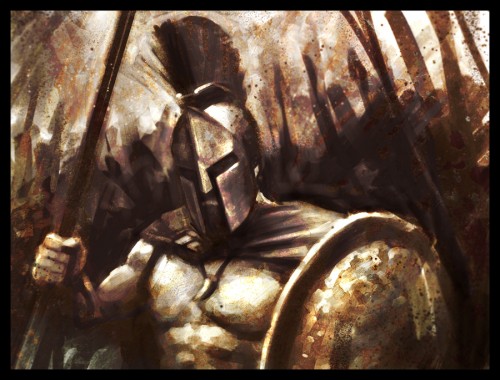
Intervention d'Alain Cagnat lors de la XVII° Table Ronde de "Terre & Peuple"
LE COMBAT CULTUREL
Comme Martin Luther King, « I have a dream ». Imaginons que le Front National remporte les prochaines élections présidentielles puis législatives. Qu’en ferait-il ? Faute de cadres aptes à investir les lieux du pouvoir, il ne pourrait le conserver longtemps. Mais, en fait, il ne peut conquérir le pouvoir, parce que, même s’il obtenait la majorité dans les urnes, il lui manquerait l’essentiel : le contrôle de la société civile.
L’INANITE D’UN COMBAT POLITIQUE SANS COMBAT CULTUREL
Pour Antonio Gramsci, la puissance de l’Etat, dans un pays moderne, est scindée en deux : le pouvoir politique, constitué des instances de gouvernement (exécutif, Parlement) et des piliers de l’Etat (armée, police, justice), et la société civile, composée des institutions culturelles (intellectuels, système éducatif, universités, médias, artistes, groupes d’influence). Pour simplifier les « faiseurs d’opinion ».
Pour que le pouvoir puisse fonctionner, il faut qu’il y ait concordance entre les deux sociétés, politique et civile. Si ce n’est plus le cas, sans contrôle de la société civile, la société politique n’est pas en état de diriger le pays. L’Etat semble solide sur ses bases, mais, en fait, il ses bases sont pourries. Comme une tour du World Trade Center, il s’effondre tout d’un bloc, alors qu’à la seconde précédente, il paraissait indestructible.
Il est donc essentiel, pour le pouvoir, de « tenir » la société civile. Cela passe par un contrôle sans faille du pouvoir culturel qui s’exerce dans tous les secteurs et à travers tous les vecteurs de la vie politique, économique, mais aussi médiatique et artistique : télévision, cinéma, théâtre, presse, maisons d’édition, mode, urbanisme, mœurs…
A contrario, pour l’opposition, il ne peut y avoir de combat politique efficace qui ne repose sur un combat culturel parallèle. A défaut, la quête du pouvoir est pure utopie. L’analyse de Gramsci était très pertinente. Il est seulement dommage que les marxistes l’aient lue avant nous. Et il faut se rendre à l’évidence : à l’heure actuelle, le pouvoir culturel nous échappe complètement. Comment en est-on arrivé là ?
LE CONSTAT DES ANNEES 1960
En 1962, la droite dite nationale n’existe plus. Elle a été décapitée, intellectuellement et physiquement, lors de l’Epuration de 1944-45 d’abord, puis à l’occasion de la défense de l’Algérie Française. Une fausse droite, la droite des moutons, la remplace : pétainistes en 40, gaullistes en 44, Algérie française en 58, Algérie algérienne en 62, gaullistes, giscardiens, puis chiraquiens et enfin sarkozystes. Ils sont ce « peuple de veaux » que méprisait leur idole. Ils n’ont aucune idéologie, sinon celle de leur petit confort ; couards à en vomir, ils sont prêts à tout accepter du moment qu’on les laisse jouir tranquillement de leur vie de néant.
Julius Evola écrivait dans Des Hommes au milieu des Ruines : « Le problème fondamental consiste à déterminer s’il existe encore des hommes capables de repousser toutes les idéologies, toutes les formations partisanes et tous les partis politiques qui dérivent, directement ou indirectement de ces idées, c’est-à-dire, en fait, tout ce qui va du libéralisme et de la démocratie au marxisme et au communisme ». Une poignée de militants va relever le défi du combat culturel : ils appartiennent à la Fédération des Etudiants nationalistes et au mouvement Europe-Action. Ils sont les Soldats de la Classe 60 qu’appelait de ses vœux Robert Brasillach du fond de sa prison. Ils ont compris que la décennie 1960 allait transformer le monde, par la décolonisation d’abord, et ses conséquences migratoires, puis par la révolution culturelle qui trouvera son point d’orgue en 1968. C’est grâce à eux que naît ce mouvement intellectuel qu’on a appelé la Nouvelle Droite, dont le fer de lance fut le GRECE. C’est ce combat culturel qu’a repris Terre et Peuple, non pas pour sombrer dans l’intellectualisme où se sont égarés certains, mais pour nous emparer, un jour, du pouvoir politique.
Entre 1977 et 2012, un événement majeur est intervenu : l’effondrement de l’URSS. D’aucuns ont cru, naïvement, que les idées marxistes allaient disparaître dans les gravats du Mur de Berlin. Ceux-là n’avaient pas compris que le marxisme n’était qu’une des branches de l’égalitarisme. Le libéralisme en est une autre, avec sa volonté de réduire l’individu en un consommateur décérébré qu’on assommera à coups de loisirs débilitants et à qui on inculquera que la seule valeur qui vaille, c’est l’argent.
En 1977, le GRECE publiait un petit ouvrage intitulé Dix ans de combat culturel pour une renaissance, qui faisait le point sur la première décennie de ce combat culturel. Il parlait de terrorisme intellectuel, d’antiracisme, d’identité, d’éducation, d’enracinement… Force est de constater, à sa relecture, 35 ans plus tard, que l’ennemi a progressé sur toute la ligne de front.
LA SUBVERSION INTELLECTUELLE
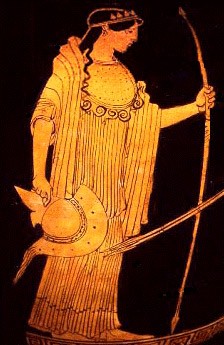 La décennie 1960, et particulièrement Mai 68, fut un désastre spirituel et culturel. La volonté de l’intelligentsia subversive qui prit les commandes du pouvoir culturel à ce moment-là et ne l’a plus quitté, est de déstructurer à la fois la société, en sapant l’autorité, en combattant toute hiérarchie, en inversant les valeurs, et l’individu, en effaçant sa mémoire, en le coupant de ses origines, en brisant sa culture.
La décennie 1960, et particulièrement Mai 68, fut un désastre spirituel et culturel. La volonté de l’intelligentsia subversive qui prit les commandes du pouvoir culturel à ce moment-là et ne l’a plus quitté, est de déstructurer à la fois la société, en sapant l’autorité, en combattant toute hiérarchie, en inversant les valeurs, et l’individu, en effaçant sa mémoire, en le coupant de ses origines, en brisant sa culture.
Le postulat est que tout se vaut, les individus comme les cultures. La normalité n’existe pas, ou bien, tout est normal, à commencer par l’anormalité. L’hétérosexualité n’est pas plus normale que l’homosexualité. Les fous ne sont pas plus fous que les gens normaux. Les criminels sont encore plus des victimes (de la société) que les vraies victimes, et méritent donc plus de compassion. On ne parle plus de sanction, de dette envers la société ou de mise à l’écart pour empêcher le délinquant de nuire, mais on parle de réinsertion : la prison, , doit être l’exception. Les « sans papiers » ne sont plus des clandestins hors la loi, mais des citoyens en attente de régularisation. Les « roms » sont des victimes ; s’il y a tant de délinquance chez eux, c’est qu’on n’est pas assez gentil avec eux. Toute marginalité est bienvenue. Toute discrimination est strictement prohibée. L’ennemi, c’est l’altérité : raciale, ethnique, culturelle, sexuelle même.
DETRUIRE LA FAMILLE
Le plus important est de détruire la famille. Par trois chantiers : la légalisation de l’avortement, la banalisation du divorce, et l’apologie de l’homosexualité.
Avec l’avortement légalisé et remboursé, sans garde-fou, les femmes sont enfin libres de leur corps, vieille revendication des féministes et des soixante-huitardes. La fécondité, quelle horreur ! Depuis 1974, ce sont plus de six millions de petits êtres innocents qui ont fini dans les crématoires hospitaliers de France. Merci, Simone. Et ce qui est encore mieux, c’est qu’il s’agit surtout de petits Blancs. Parce que dans les « quartiers », on n’avorte qu’exceptionnellement.
On a rendu le divorce de plus en plus facile : un pet de travers de l’un ou de l’autre, et hop, un petit tour chez le juge, et vive la liberté. Et puis, les familles recomposées, c’est tendance. C’est chouette d’avoir, tout à coup, des tas de frères et sœurs avec lesquels ont vit un temps, puis dont on change, au gré des rencontres de Papa ou Maman. Occulté totalement, le traumatisme réel des enfants dont les parents se séparent. Et pour enfoncer le clou, on a instauré, en amont, le PACS en 1999 : même plus besoin de divorcer !
L’homosexualité était perçue comme une déviance, et même une maladie mentale par l’OMS jusqu’en 1981. Aujourd’hui, c’est aussi tendance. Mais si vous n’en pensez pas que du bien, c’est que vous êtes homophobe ! Homophobe ou raciste, c’est pareil : gare à l’arsenal répressif ! L’une des promesses de la gauche (qui ne coûte pas grand-chose, celle-ci) est d’autoriser le mariage entre deux personnes de même sexe : c’est moderne, d’ailleurs d’autres pays l’ont fait avant nous, l’Espagne, le Portugal… c’est que ça doit être bien. Certains pensent même à instaurer un « mariage pour tous » : on pourrait se marier à trois ou à quatre. En 2003, le magazine Elle avait même inventé un nouveau terme : le « trouple » pour couple + trio. Ce serait chouette et comme ça, on ferait plaisir aux partisans de la charia qui prônent la polygamie.
Mieux, les homosexuels pourront adopter. C’est le petit qui va être content (ou la petite) : il (elle) aura deux papas ou deux mamans. D’ailleurs, les futurs livrets de famille ne comporteront plus les mentions « père » et « mère », mais « parent 1 » et « parent 2 ». Plus grave, on sait qu’un certain nombre d’homosexuels hommes (même si ce nombre est faible) sont aussi pédophiles. Pour preuve, il n’y a pas si longtemps, le Larousse et le Robert définissaient la pédérastie (mot suspect aujourd’hui, mais prisé par André Gide) pour qualifier aussi bien un homme qui a des rapports sexuels avec un autre homme, qu’un homme qui a des rapports sexuels avec un enfant. Qu’est-ce qui garantira que l’enfant adopté ne sera pas la victime de quelques prédateurs ?
Pour parachever le tout, on a inventé le « genre ». On ne serait homme ou femme que parce que la société nous conditionnerait dans ce rôle dès le plus jeune âge. Le résultat d’un apprentissage culturel. Peu importe que cette aberration soit en contradiction totale avec la nature ! Dans certaines maternelles, on fait jouer les garçons à la poupée et on met les filles à l’établi. A quand des individus asexués ou hermaphrodites ? On voit bien la main des lobbies homosexuels derrière cette opération.
On a donc bien compris que cette intelligentsia voulait détruire les fondements du vieux monde. Mais pour le remplacer par quoi ? Par une nouvelle religion dont les piliers s’appellent égalitarisme, universalisme et antiracisme.
LA RELIGION DE L’EGALITARISME
Cette idéologie va à l’encontre des lois de la Nature qui montrent que le monde n’est que diversité et hétérogénéité. Elle est totalement étrangère à l’univers des peuples européens. Les sociétés indo-européennes sont fondées sur une organisation trifonctionnelle : la souveraineté et le sacré, tout en haut, la fonction guerrière ensuite, et enfin la fonction productive.
Il faut remonter au christianisme primitif pour trouver la source de l’égalitarisme. Mais celui-ci définit les hommes comme égaux seulement devant Dieu. C’est avec le mouvement des idées du XVIIIème siècle que l’égalitarisme se laïcise. L’avènement de la démocratie en Angleterre, la Révolution française puis les révolutions marxistes l’ont érigé en idéologie dominante.
Il faut détruire les peuples dans leur variété, car chacun porte ses traditions, sa culture, sa langue, etc. en un mot ses différences. La République jacobine ne s’y est pas trompée qui a tout fait pour éradiquer tout particularisme régional, depuis plus de 200 ans. Le but est de transformer les individus en êtres indifférenciés, donc parfaitement interchangeables. Le nivellement des masses commencer dès le plus jeune âge et suivre l’individu tout au long de sa vie. Toute méritocratie doit être abolie.
Selon le postulat « Tout se vaut », il faut rabaisser la civilisation européenne et rehausser les autres cultures. Le discours ambiant proclame donc que la civilisation européenne ne serait rien sans l’apport des civilisations orientales, en particulier la civilisation arabo-musulmane. Comme on a pu le voir récemment dans une série sur ARTE, L’Orient et l’Occident, les Européens devraient tout non seulement aux Arabes, mais aussi aux Ottomans, aux Sumériens, aux Egyptiens et même aux Mongols (sic). Par exemple, Copernic n’aurait fait que plagier un savant arabe du 13ème siècle, etc. Si l’on comprend bien, sans ces braves gens, nous serions encore couverts de peaux de bêtes et nous vivrions dans des cavernes.
Il va de soi qu’un livre comme celui de Sylvain Gouguenheim, Aristote au Mont Saint-Michel, dérange beaucoup. Il démontre de manière scientifique que le Haut Moyen Age n’est absolument pas la période sombre qu’on veut bien nous faire croire, et que le savoir des Grecs a été transmis par les monastères occidentaux et par l’Empire romain d’Orient qui fut un foyer de foisonnement intellectuel à Byzance jusqu’en 1453. « L’image biaisée d’une chrétienté à la traîne d’un Islam des Lumières » relève plus du parti pris idéologique que de l’analyse scientifique » ne pouvait lui valoir que l’anathème de la bien pensance.
LA RELIGION DE L’UNIVERSALISME
L’universalisme est le pendant de l’égalitarisme. L’individu indifférencié devient le citoyen du monde et nous sommes tous des habitants du « village monde ». Le rêve de ces fanatiques est d’établir un gouvernement mondial. Il ne faut pas croire que ce n’est qu’utopie. Le Nouvel Ordre Mondial, voulu aussi bien par les marxistes que par les libéraux, pour des raisons faussement antagonistes, est déjà en marche avec toutes ses courroies de transmission internationales : ONU, OMC, Union Européenne, etc. Ce qu’explique Jacques Sévilla, dans Historiquement incorrect : « La libre circulation des biens, des capitaux et des hommes et le matérialisme mercantile tendent à considérer l’être humain comme un consommateur, et la planète comme un marché sans frontières. Au regard des exigences du libre-échange, les nations sont des enracinements à combattre ».
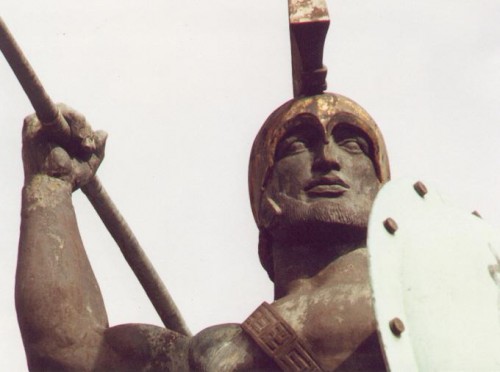
Michèle Tribalat, quant à elle, dans Les yeux grands fermés, parle de « totalitarisme doux » :« Les défenseurs des droits de l’homme et ceux d’une conception libérale se rejoignent pour souhaiter une libre circulation des hommes alignée sur celle des marchandises et des capitaux… Ils invitent à considérer les flux migratoires comme des rivières naturelles contre lesquelles on ne peut pas grand-chose et auxquelles il faut plutôt songer à s’adapter avec entrain…»
L’ABRUTISSEMENT DES FOULES
Big Brother n’a pas oublié la maxime des Romains : « Du pain et des Jeux » pour le peuple. Son arsenal est infini : la téléréalité, les jeux télévisés débiles, les films bien pensants, les people, le bling-bling… Surtout ne pas donner à réfléchir à ce troupeau d’imbéciles qui bouffent du McDo, boivent du Coca et se gavent de séries américaines. Ce sont, comme l’écrit Richard Millet, dans De l’antiracisme comme terreur littéraire : « Des esclaves convaincus que leur néant est la forme suprême du bonheur ».
Je ne cesse jamais de m’étonner en consultant le classement des personnalités préférées des Français du Journal du Dimanche. Les lauréats sont : Yannick Noah, Omar Sy, Zinédine Zidane, Jamel Debbouze, Gad Elmaleh, et Mimie Mathy qui a détrôné l’icône Simone Weil. Je ne vous dirai surtout pas qu’il y a là deux personnes d’origine africaine, deux personnes d’origine maghrébine, deux personnes de religion juive et une personne qui a un handicap. La police de la pensée dirait que c’est discriminatoire et je serais d’accord avec elle. Non, je m’étonne plutôt que Yannick soit un délinquant fiscal, qu’Omar ait émigré fiscalement aux Etats-Unis dès qu’il est devenu riche, que Zinédine soit notamment célèbre pour donner des coups de boule dans les stades et que Jamel soit très discret sur son passé de délinquant. Finalement, il n’y a que Mimie pour laquelle j’ai de la considération. Mais c’est un avis tout personnel.
Je m’étonne qu’il n’y ait dans ce classement pas de sportifs comme Sébastien Loeb, Yannick Agnel ou Christophe Lemaître, ou de chanteurs comme Charles Aznavour, Serge Lama ou Patricia Kaas, par exemple. Ni de scientifiques, ni d’écrivains, ni de médecins… Pensez, il n’y a même pas Bernard-Henri Lévy ! Mais, enfin, quand on sait que 19 millions d’habitants de ce pays sont allés voir Intouchables, avec le même Omar Sy, un bel hymne à la diversité où le Blanc est un benêt, je ne m’étonne plus de rien.
LE TERRORISME INTELLECTUEL
L’idéologie totalitaire a besoin de moyens totalitaires pour faire taire les rebelles. Elle a donc développé tout un arsenal de lois liberticides qu’applique avec zèle la meute des chiens de garde d’une magistrature collabo tout acquise à la « cause ». Il ne faut pas hésiter à parler d’une nouvelle inquisition. Les grands prêtres en sont les intellectuels de magasin Lidl comme Bernard-Henri Lévy, Jean-François Kahn ou Laurent Joffrin. Leurs officines s’appellent Le Monde, Libération, Le Nouvel Observateur… Derrière Le Monde, il y a la Banque Lazard, et derrière Libération, il y a la Banque Rothschild ! Etonnant, non ? Mais rares sont les hommes courageux qui osent s’opposer à cette dictature de la pensée dans la droite des moutons. La plupart préfèrent hurler avec les loups.
Autrefois, aux yeux de l’intelligentsia, l’ennemi était le fasciste, terme utilisé à tout bout de champ et toujours hors de propos. De nos jours, quatre blasphèmes vous emmènent directement en Correctionnelle, autrement appelée TGI, non pas pour Tribunal de Grande Instance, mais Tribunal de la Grande Inquisition : antisémite, raciste, homophobe, islamophobe. La liste n’est pas exhaustive et s’enrichit régulièrement. Ainsi, dès qu’un auteur exprime des idées contraires au « politiquement correct », il est mis au ban de la société. C’est ainsi que des enseignants (Dimitri Casali), des historiens (Sylvain Gouguenheim, Jacques Heers, Daniel Lefeuvre, Olivier Piétré-Grenouilleau, Jacques Sévilla), des géopoliticiens (Aymeric Chauprade, Annie Laurent, Bernard Lugan), des démographes (Jean-Paul Gourevitch, Michèle Tribalat), des sociologues (Hugues Lagrange, Pierre-André Taguieff), des écrivains (Richard Millet, Jean Raspail) subissent, à des titres divers, les foudres du Système pour avoir osé se dresser contre lui.
Les gens des médias n’échappent pas à la règle, comme Eric Zemmour pour avoir dit que les prisons étaient remplies de Noirs et de Maghrébins. Et il faut s’appeler Gilles-William Goldnadel et être membre du comité directeur du CRIF pour écrire impunément Réflexions sur la question blanche en 2010.
LES ATTEINTES A LA LIBERTE D’EXPRESSION : LES LOIS MEMORIELLES
« Tout individu a droit à la liberté d'opinion et d'expression, ce qui implique le droit de ne pas être inquiété pour ses idées, et celui de rechercher, de recevoir et de répandre, sans considération de frontières, les informations par quelque moyen que ce soit » (Déclaration internationale des Droits de l'Homme, adoptée par l'ONU le 10 Décembre 1948).
Il y a longtemps que la liberté d’expression n’existe plus en France, si tant est qu’elle ait existé sous les différentes Républiques. « Pas de liberté pour les ennemis de la liberté ! », comme disait Saint-Just. Aujourd’hui, il n’y a plus de guillotine pour se débarrasser des ennemis de la république, mais on a inventé les lois liberticides, joliment appelées lois mémorielles. Et l’arsenal répressif est impressionnant. La prison, bien sûr, mais elle est rarement utilisée, car les établissements pénitentiaires manquent de place. Et puis, il y a une sanction qui est beaucoup plus efficace, celle qui fait mal au portefeuille : l’amende, généralement très élevée, dont on sait qu’elle mettra le récalcitrant à genoux, qu’il aura du mal à s’en relever et que, probablement, il en sortira dégoûté et hors d’état de nuire. Celle-ci peut aller jusqu’à 45 000 euros. Il vaut mieux brûler des voitures, vendre de la coke ou s’éclater dans une tournante.
LA LOI FABIUS-GAYSSOT : LA RELIGION DE LA SHOAH
« Les juifs n’ont pas le monopole du martyre ! On comptait beaucoup d’Auvergnats, de Périgourdins, voire de Bretons à Auschwitz et à Dachau. Pourquoi nous rebat-on les oreilles avec le malheur juif ? Oublie-t-on le malheur berrichon ? Le pathétique poitevin ? Le désespoir picard ». C’est Patrick Modiano qui s’exprime ainsi dans La Place de l’Etoile, en 1968. Impensable aujourd’hui !
Car la première loi mémorielle est la loi Fabius-Gayssot (1990) qui définit le délit de « négation des crimes contre l’humanité ». Grâce à elle, la Shoah est devenue le Dogme absolu, intouchable, ainsi que l’explique Jacques Heers dans L’Histoire assassinée : « On ne peut nier que ces condamnations lancées par le pouvoir politique aient lourdement pesé sur la recherche historique. Cela s’affirme évident lorsque ce pouvoir, ayant fait connaître sa vérité jusque dans les détails, interdit formellement toute nouvelle enquête, révision, précision même qui risquerait de mettre en cause ses certitudes, ne serait-ce que sur un seul aspect du problème. Lorsque le seul fait de souhaiter confier aux historiens l’étude du passé, sur tel ou tel point contesté, est aussitôt pris pour un grave délit, il est bien clair que toute recherche se trouve figée, réduite à la clandestinité ou, plutôt, réduite à néant ».
Il faut s’appeler Jacques Sévilla pour oser écrire : « Or, à écouter le discours dominant, celui qui prévaut au cinéma, à la télévision, dans les livres ou les commémorations officielles, le sort tragique de ceux qui ont été déportés uniquement parce qu’ils étaient juifs paraît désormais le seul à bouleverser les consciences… La solution finale est une tragédie particulière qui s’est déroulée au sein d’une tragédie générale ».
C’est que le sujet est totalement sacralisé et verrouillé, comme l’explique le gourou de la Shoah, Claude Lanzmann : « Il y a sans doute eu des excès dans la « mobilisation mémorielle. » Mais ne vous y trompez pas : « ce » n’est pas fini et ça ne finira pas... Oui, les outrances, les rituels, les commémorations… peuvent énerver. Ceux que ça énerve n’ont qu’à soigner leurs nerfs ». Voila, c’est dit. Nous ne sommes plus dans le rationnel et l’objectif. Nous sommes dans l’irrationnel, le mystique, le sacré. Pierre Nora parle de « nouvelle religion séculière » et Goldnadel de « religion shoahtique ».
Une telle attitude n’est pourtant pas sans danger comme l’écrit Esther Benbassa : « La mémoire de la Shoah s’impose… jusqu’à légitimer une étonnante tendance à la victimisation, victimisation qui immunise le juif contre toute critique et immunise par là même Israël ». La Shoah serait donc un système qui permettrait à la communauté juive de noyauter tous les pouvoirs, politique, financier, médiatique, show-business…, de réclamer toujours plus de réparations, de culpabiliser encore et toujours les Allemands qui ont commis l’Holocauste, les Suisses qui ont détourné la fortune des déportés, les Français qui ne les ont pas assez aidés, et également de soutenir coûte que coûte l’Etat d’Israël. C’est la thèse de Norman Finkelstein dans L’industrie de l’Holocauste, Réflexions sur l’exploitation de la souffrance des juifs (2000). L’antisémitisme des banlieues se nourrit des outrances du discours sur la Shoah.
LA LOI TAUBIRA : LES TRAITES NEGRIERES
La seconde est la loi Taubira (2001), qui qualifie de crime contre l’Humanité la seule traite négrière pratiquée par les Européens, pourtant moins importante que celle pratiquée par les Arabes ou par les Noirs entre eux. Car « Il ne faut pas désespérer les banlieues » dira-t-elle pour se justifier. Jacques Heers lui répondra : « Personne ne devait s’y tromper, on ne voulait parler que des Français et des Anglais, seuls responsables du dépeuplement de l’Afrique. […] Quant aux Musulmans, mieux vaut se taire : ce serait du racisme ». Et la loi Taubira va très loin. Elle exige que, non seulement la mémoire des esclaves soit défendue, mais aussi que « l’honneur de leurs descendants soit également défendu ». Ce qui légitime et légalise pour la première fois le principe du malheur héréditaire.
Mais notre chère Garde des Sceaux ne s’est jamais indignée du fait que l’esclavage perdure dans 23 pays d’Afrique (Mauritanie, Somalie, Soudan, Congo,…) et du Proche-Orient (Yémen, sultanat d’Oman, Arabie saoudite,…), touchant au moins 27 millions d’individus ! Pourquoi ne pas faire de loi mémorielle sur le massacre des Albigeois, des Vaudois et autres protestants ? Ou sur le génocide que nos révolutionnaires ont pratiqué en Vendée ? Mais non, il y a de bons génocides (ceux qui exterminent les méchants) aux yeux de nos donneurs de leçons.
Jacques Heers a démonté le procédé : « L’Etat, maître depuis longtemps dans l’art de dicter l’Histoire par célébrations et pantomimes, sait aussi, depuis quelques années, montrer d’un doigt vengeur les affreux, les criminels et les pervers dans un passé de plus en plus lointain. […] Contre ces maudits, les forces du Bien mènent non une guerre de conquête mais une expédition punitive, une croisade des temps modernes. […] Ces escroqueries intellectuelles sont délibérément préparées puis imposées par une volonté politique qui décide de ses choix et prétend, au nom d’une idéologie, d’intérêts immédiats, d’une complaisance diplomatique, écrire et réécrire l’Histoire ».
LA RELIGION DE L’ANTIRACISME
L’UNESCO écrivait dans son Courrier en novembre 1974 : « L’utilisation du mot race pour désigner différents groupes ethniques n’est pas erronée. Différentes races existent bien et sociologues, anthropologues, etc. utilisent tous ce mot. Ce qui est erroné, c’est de penser à ces différentes races en termes d’infériorité ou de supériorité ». Cela tombe sous le sens. Mais c’était en 1974. Depuis, la grande machine à laver les cerveaux a fait des ravages.
C’est Gilles-William Goldnadel qui écrit dans Réflexions sur la question blanche : « Il fut pourtant un temps, pas si lointain, où le mot race et la chose n’avaient rien d’interdit. Mais depuis la Shoah, l’irrationnel le plus complet s’est emparé du concept racial ». Et encore : « L’obsession xénophile issue du choc médiatique de la Shoah est passée au milieu. Dans le mitan des années 1960. C’est elle qui proscrit désormais toute réflexion identitaire nationale autour de questions religieuses ou ethniques. Et même rend sulfureuse la seule évocation de l’idée de race ».
Ainsi, il y a bien des races de chiens, de chats, de bovins, d’ovins, de poules…, mais, contrairement à l’évidence, il n’y a plus de races humaines, il n’y a qu’une espèce humaine qui est LA race humaine. Les races humaines n’existant pas, il a bien fallu, pour continuer à différentier les peuples entre eux, parler d’ethnies, faisant ainsi dériver le sens de ce mot. Comme le dit Alain de Benoist : « En supprimant le mot, on croit supprimer la chose. Mais les mots ne sont pas les choses, et les réalités demeurent ».
Les officines porte-flingues de la police de la pensée veillent : SOS Racisme, le MRAP, la LICRA, le CRIF, les Indigènes de la République, le CRAN… Gare à l’imprudent ! Il se retrouvera vite traîné en Correctionnelle, ou à tout le moins lynché dans les médias qui pensent bien. Comme Richard Millet : « La gnose antiraciste tente de nous persuader que les races n’existent pas, à tout le moins la race blanche, coupable, exclusivement, de tous les maux, et promise, punition et rédemption, à disparaître dans la fade colorisation du métissage universel prôné par le parti dévot … Il est donc devenu, même avec la caution de Lévi-Strauss, impossible de s’interroger sur le seuil de tolérance ou sur la couleur des gens, leur origine, le caractère de ce qui est français, la nation, la faillite de l’enseignement, la culture comme universalisation du mensonge, bref tout ce qui dégrade un réel que la Propagande tente d’escamoter mais qui ne cesse de resurgir dans la violence de sa vérité ». Car les faits sont têtus.
LE RACISME ANTI-BLANC
L’antiracisme est à sens unique. Le racisme ne peut s’exercer que de la part des Blancs à l’encontre des Noirs, des Jaunes ou des Rouges. Jamais à l’inverse. C’est ce qu’explique Goldnadel : « L’antiracisme sait faire montre de discernement compréhensif. On tolère aisément que des mouvements revendicatifs communautaristes – comme les Indigènes de la République – se réclament ouvertement de la notion de race. On admet parfaitement qu’un Antillais puisse se sentir une solidarité chromatique naturelle, par exemple dans le domaine sportif, avec un Ivoirien ou un Sud-Africain. Mais un Blanc ! Suggérer la possible existence d’une race blanche, et vous allez entendre toute la gamme des bruits martyrocrates qui vont du toussotement gêné au hurlement vengeur en passant par le ricanement goguenard ».
Parmi le florilège des cris de vierges effarouchées, citons SOS Racisme : « Nous ne pouvons accepter la notion de racisme anti-Blancs parce qu’elle est une thèse défendue depuis longtemps par l’extrême-droite ». En résumé, parler de racisme anti-Blanc, c’est, aux yeux des antiracistes, encore du racisme. Les Indigènes de la République, eux, ont un raisonnement quelque peu spécieux : le Blanc ne peut être victime de racisme puisque c’est lui qui en a inventé le concept (sic). C’est qu’ils nous aiment bien, ces indigènes, comme le prouvent ces propos de leur présidente, Houria Bouteldja : « Aujourd’hui, il y a encore des gens comme nous qui vous parlent encore. Mais, demain, il n’est pas dit que la génération qui suit acceptera la présence des Blancs ». Si ce n’est pas du racisme anti-Blanc, qu’est-ce que c’est ?
Je ne résiste pas à l’envie de vous réciter quelques paroles extraites de chansons de rap, qu’on connaît par cœur dans les « quartiers » :
- « Les keufs connaissent l’odeur de ma bite » ( groupe Brûle),
- « Faut que Paris crame ! » (groupe Salif),
- « J’ai envie de dégainer sur les faces de craie » (groupe Amer),
- « C’est pour niquer la France… Flippe pour ta femme, tes enfants, pour ta race ! On est installés ici et c’est vous qu’on va mettre dehors » (groupe Smala),
- « On va emmener les porcs à la morgue, brûler leur sperme en échantillon, souder leurs chattes. Quand j’vois la France les jambes écartées, j’l’encule sans huile » (groupe Lunatic),
- « J’aime les CRS morts… J’prends mon temps à me dire que j’finirai bien par leur tirer dessus » (groupe Islam)
Du racisme anti-blanc ? Pas du tout, c’est de l’art. D’ailleurs, ces sublimes chansons sont en vente à la FNAC, chez Virgin ou chez Amazon !
Pierre Desproges disait : « Je serai antiraciste quand on écrira « racismes » au pluriel ».
Mais il ne faut pas désespérer. Même l’UMP, ou tout au moins une partie du parti des moutons, deviendrait courageuse. Jean-François Copé ose parler de racisme anti-blanc dans son manifeste, « La droite décomplexée ». Même si c’est par calcul, c’est révélateur.
METISSEZ-VOUS !
L’heure est au métissage obligatoire. Mais pour les Blancs seulement. Comme l’écrit Goldnadel, « La France, c’est comme une Mobylette : elle marche au mélange », disaient finement les gentils potes de SOS-Racisme, la main jaune sur le cœur, telle l’étoile nostalgiquement regrettée. L’homme blanc, l’indigne, pour survivre, doit disparaître… ».
Cet avis est partagé par Taguieff : « En quoi le « pluriel » et le « métissé » sont-ils plus dignes d’admiration que ce à quoi on les oppose ? Pourquoi préférer la « diversité », source d’inégalité et de conflit, à l’homogénéité ou à l’unité ? Cette vision d’un avenir radieux est fondée sur deux axiomes : le changement est amélioration, le mélange est « enrichissement »... Mais ces deux propositions ne font qu’exprimer des croyances, et, ainsi formulées, elles sont l’une comme l’autre fausses : tout changement n’implique pas une amélioration, tout mélange ne constitue pas un « enrichissement »
Il l’était également par Alain de Benoist, dans les années 1970 : « Vaut-il mieux une planète où coexistent des types humains et des cultures variés, ou bien une planète dotée d’une seule culture et, à terme, d’un seul type humain ? On pourrait distinguer entre raciophobes et raciophiles. Les premiers souhaitent la disparition des races, donc l’uniformisation des modes de vie. Les seconds pensent que c’est la pluralité de l’humanité qui fait sa richesse, et qu’un monde où l’on retrouverait, sur les deux hémisphères, les mêmes villes, les mêmes immeubles, les mêmes magasins, les mêmes produits, les mêmes modes de vie, serait un monde incontestablement appauvri ».
Eh bien, oui ! Nous sommes des raciophiles, ou des ethno-différentialistes si l’on préfère. Nous voulons conserver la diversité et la spécificité des peuples de la Terre, celles des Bretons et des Alsaciens, bien sûr, mais aussi celles des Navajos des Etats-Unis, des Jivaros du Brésil, des Hottentots d’Afrique du Sud, des Karens de Birmanie et des Aborigènes d’Australie. Nous ne voyons pas quel avantage tirerait l’Humanité du métissage des Masaï avec des Ouïghour. Les racistes ne sont pas ceux que l’on pense.
RABAISSER L’HOMME BLANC PAR LA CULPABILITE ET LA REPENTANCE
La démolition de la société européenne passe par la culpabilisation de l’Homme blanc. Les Français ne furent que d’horribles esclavagistes au XVIIIème siècle, d’affreux colonialistes au XIXème et d’infâmes collabos au XXème. Nous sommes « coupables de crimes contre l’Humanité, contre la civilisation, contre les Droits de l’Homme », c’est l’infâme Gilles Manceron qui l’écrit dans Marianne et les colonies. Introduction à une histoire coloniale de la France. Repentons-nous, mes frères, pour tant d’ignominie. Trempons-nous dans le goudron et couvrons-nous de plumes. Nous ne méritons que cela.
Je prendrai un exemple, celui de l’apport de la société arabo-musulmane à la civilisation occidentale. Aux yeux des partisans de cette pseudo-thèse, il s’agit de ce qu’on peut appeler un « héritage oublié ». Avoir oublié un héritage, c’est-à-dire ce que l’Europe doit au monde arabo-musulman, c’est avoir une dette à son égard, c’est se montrer ignorant et ingrat, donc coupable.
Un autre exemple, celui du film Indigènes dont on veut nous faire croire qu’ils ont libéré à eux-seuls le territoire national et que la France ne fut qu’ingratitude à leur égard. Le répugnant Debbouze proclame : « C’est l’histoire de tirailleurs qui se sont battus pour la mère patrie mais qui, le jour de la victoire, n’ont pas eu le droit de défiler sur les Champs-Elysées ». Ce qui est tout à fait faux ; il suffit de regarder les images d’archives des défilés de la Libération. Et les indigènes n’ont pas eu plus de pertes que les autres contingents de l’Armée d’Afrique, bien au contraire. Mais peu importe le mensonge : « Mentez, mentez, il en restera toujours quelque chose ! » disait Lénine.
Tout ceci ne fait que conforter les minorités allogènes dans leur certitude que les Occidentaux, les Blancs, sont les oppresseurs des peuples et les pilleurs de la planète. Et qu’en conséquence, il faut se venger. Impunément ! Puisque ce sont ces ethnomasochistes de Blancs qui le disent eux-mêmes.
L’œuvre de castration intellectuelle de l’Européen, fonctionne à merveille : la honte l’empêche de revendiquer son identité. Le Blanc se vautre dans une autoflagellation permanente : « L’Occidental, qui ne s’aime plus, a perdu le droit de haïr la haine d’un ennemi qu’il n’a même plus le droit d’avoir, pas même de nommer » (Goldnadel).
« Comme s’il était bon, dans tous les cas, de se dénigrer jusqu’à se haïr soi-même, et totalement condamnable d’abaisser ou d’exclure, quoi qu’il fasse, un quelconque représentant de la catégorie « les autres » (Taguieff).
DETRUIRE L’IDENTITE
L’idéologie universaliste a coupé la société française en deux. D’un côté, la gauche renforcée par les bataillons de la droite des moutons, qui pense que la France est née en 1789, et que la France c’est la République. Ainsi, pour être français, il suffit d’adhérer aux valeurs de la République, les droits de l’homme, l’égalité, l’universalité : donc, tout habitant de cette petite planète peut être français. Les martiens aussi s’ils existent.
Comme dit Jacques Sévilla de ces gens-là : « La nation n’est plus un héritage, mais un contrat conclu entre des associés volontaires. La patrie n’est plus la France charnelle, la société telle qu’elle est, mais le lieu où se reconnaît l’humanité, présente partout où règne la raison : le patriotisme se confond avec l’attachement aux principes de 1789. Un patriote, c’est un adepte des idées révolutionnaires, quel que soit son pays ».
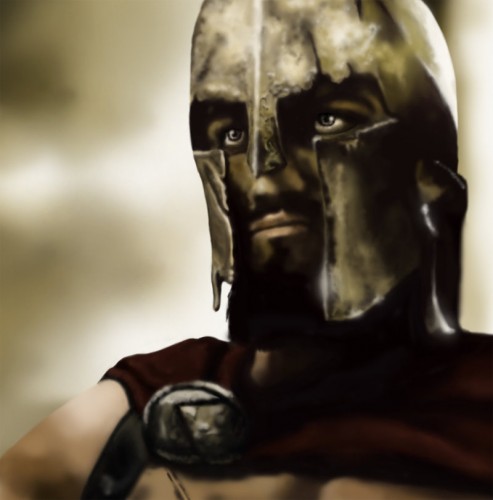 De l’autre, une minorité qui se situe ailleurs, – et que nos ennemis aiment stigmatiser par le terme d’extrême-droite, quand ce n’est pas de fascisme -, et qui rassemble les identitaires, les nationalistes, les monarchistes, les souverainistes, les catholiques traditionnalistes, les solidaristes… pour lesquels la nation est une patrie charnelle, c’est-à-dire qu’elle est à la fois une Terre et un Peuple. Car les racines de notre pays s’inscrivent dans un long processus historique qui plonge dans une très longue mémoire. Comme l’écrivent :
De l’autre, une minorité qui se situe ailleurs, – et que nos ennemis aiment stigmatiser par le terme d’extrême-droite, quand ce n’est pas de fascisme -, et qui rassemble les identitaires, les nationalistes, les monarchistes, les souverainistes, les catholiques traditionnalistes, les solidaristes… pour lesquels la nation est une patrie charnelle, c’est-à-dire qu’elle est à la fois une Terre et un Peuple. Car les racines de notre pays s’inscrivent dans un long processus historique qui plonge dans une très longue mémoire. Comme l’écrivent :
- Fernand Braudel : « Comme si l’histoire n’allait pas jusqu’au fond des âges, comme si préhistoire et histoire ne constituaient pas un seul processus »,
- Pierre Chaunu : « La clef de notre identité est enterrée là sous nos pieds. La France est faite avant la Gaule, mot tardif inventé par les Romains »,
- Jacques Sévilla : « … la nation est une communauté de naissance, un fait de nature, et non une association volontaire… La patrie est un héritage partagé entre tous les Français morts, vivants et à naître ».
C’est pourquoi il était essentiel pour l’ennemi de remplacer le droit du sang par un droit du sol cosmopolite : c’est la loi Guigou votée en 1998. C’est la plus grave atteinte à notre identité depuis le regroupement familial mis en place en 1976 par les chantres de la droite des moutons, Giscard et Chirac. La preuve de l’extraordinaire contamination des esprits dans ce pays.
LE LAVAGE DE CERVEAU COMMENCE A L’ECOLE
Le système éducatif est le cœur du problème. Qui tient l’école tient les cerveaux. C’est par là et dès la plus tendre enfance que l’idéologie de l’égalitarisme et de l’universalisme instille son venin. Le but n’est plus de former des enfants à la tête bien faite et bien remplie, mais des individus uniformisés, de bons petits républicains, droitsdel’hommmistes, antiracistes, anticolonialistes, altermondialistes, et surtout sans culture, de manière à en faire des « citoyens du monde ». L’instruction a laissé la place à l’éducation, non pas au sens noble du terme, mais au conditionnement et au dressage. Du passé faisons table rase : déracinées, les jeunes pousses n’en sont que plus malléables.
Jacques Heers s’alarmait déjà : « Toute propagande d’Etat commence par l’école. Elle doit former des citoyens et, pour bien remplir sa mission, prendre complètement les enfants en charge, les « formater » dirions-nous aujourd’hui, en faire des hommes mal à l’aise, honteux dès qu’ils auraient l’idée de penser par eux-mêmes et de remettre en cause quoi que ce soit ? ».
Pour ceux qui douteraient de la réalité de cette entreprise de lavage de cerveau, relisons ces propos de Vincent Peillon dans le Journal du Dimanche du 2 septembre : « Le point de départ de la laïcité, c’est le respect absolu de la liberté de conscience. Pour donner la liberté de choix, il faut être capable d’arracher l’élève à tous les déterminismes, familial, ethnique, social, intellectuel… ». Mais Peillon ne doit pas parler de lui-même : arrière petit-fils de rabbin, né d’une famille Blum-Lederman et ayant épousé dame Bensahel, est-il sûr de vouloir arracher ses enfants Salomé, Elie et Isaac à leur déterminisme judéo-sémitique ?
Les héros des bandes dessinées d’autrefois n’ont plus droit de cité. Tintin est un horrible raciste (Tintin au Congo) tandis que les Schtroumpfs vivent dans une société fasciste dont le Führer est le Grand Schtroumpf. Il faut aux enfants d’aujourd’hui des héros de leur temps, ouverts aux droits de l’homme et à la société multiculturelle et multiraciale :
- 65 millions de Français (Bayard) ! On ne savait pas que « tout le monde, il était français… »,
- Vivons ensemble (Albin Michel) par Mustapha Harzoune et Samia Messaoui,
- Le loup (noir) qui voulait changer de couleur (Auzon)
- Max et Koffi sont copains ; Max et Lili aident les enfants du monde ; Le tonton de Max et Lili est en prison (Serge Bloch)
- Mon premier livre de citoyen du monde (Rue du Monde) : encore Serge Bloch
- Je serai 3 milliards d’enfants (Rue du Monde).
- Stop au racisme ! (Milan Jeunesse)
- Et toi, comment tu t’appelles ? (Pastel/Ecole des Loisirs)
- Les enfants du monde ; Les enfants d’ailleurs (La Martinière Jeunesse).
Même Titeuf a laissé tomber Nadia, la petite Blanche aux taches de rousseur : dans son dernier album, il lui préfère une petite réfugiée africaine sans papiers (Titeuf à la folie).
LA REECRITURE DE L’HISTOIRE ET SON ENSEIGNEMENT
La littérature est l’une des grandes victimes de ces fous furieux. Exit les grands auteurs, Corneille, La Fontaine, Racine, Molière, Stendhal, Hugo, Musset, etc. trop difficiles à comprendre. Exit les grandes œuvres littéraires, comme Le Rouge et le Noir ou Les Misérables. Exit Voltaire. Il faut dire que le bougre a écrit une pièce qui s’intitule Le Fanatisme ou Mahomet le Prophète. Pire que Les Versets sataniques de Salman Rushdie, ou L’innocence des musulmans, ce petit navet israélo-américain qui rend les musulmans hystériques !
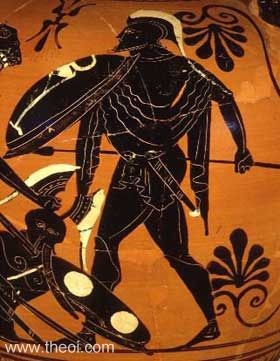 Mais la matière la plus torturée par nos idéologues est l’Histoire de France. « C’est le Passé (l’Histoire) qui fonde l’avenir, or les maîtres du présent peuvent réinventer l’Histoire » (George Orwell, 1984).
Mais la matière la plus torturée par nos idéologues est l’Histoire de France. « C’est le Passé (l’Histoire) qui fonde l’avenir, or les maîtres du présent peuvent réinventer l’Histoire » (George Orwell, 1984).
Les trois fautes commises par les pseudo-historiens politiquement corrects sont :
- L’anachronisme : le passé est jugé selon les critères politiques, moraux et culturels d’aujourd’hui,
- Le manichéisme : l’Histoire est la lutte du bien et du mal, ce qui suppose que le bien l’emportera un jour sur le mal,
- Le réductionnisme : la complexité du passé est gommée au profit de schémas d’explication simplistes qui servent à éclairer le discours ambiant.
Au placard, Vercingétorix et « Nos ancêtres les Gaulois ». Comme écrit Jacques Sévilla : « … les années 1970 ont diabolisé la formule des manuels d’autrefois. Elle n’était pourtant qu’une image. Elle signifiait que tout membre de la communauté française se reconnaissait dans une histoire commune… Etre français, ce n’est pas naître en France, ce n’est pas posséder une carte d’identité, ce n’est pas bénéficier de la protection sociale, c’est partager un héritage à partir duquel se bâtit un projet d’avenir ».
Au placard, Clovis, le fondateur du royaume des Francs, et Charlemagne, le premier Empereur unificateur de l’Europe. Ils rappellent trop que la France n’a pas attendu 1789 pour se construire. Au placard, Charles Martel, le vainqueur de Poitiers et Saint-Louis, le roi croisé. Il ne faut pas froisser nos chères petites têtes voilées.
Au placard, tous ces « rois qui ont fait la France » comme aiment à chanter les monarchistes : François 1er, Henri IV, Louis XIV… Pensez, Louis XIV ? « Un benêt sans esprit » pour le grand historien Jean-François Kahn, qui n’hésite pas à écrire dans Marianne : « Le règne de Louis XIV est le premier des régimes totalitaires : répression, personnalisation du pouvoir, dogme religieux de l’Etat, domination arbitraire, droits de l’homme piétinés ». Comme si les « droits de l’homme » existaient au XVIIIème siècle !
Paradoxalement, Jeanne d’Arc est toujours au programme, sans doute pour éradiquer les vilains sentiments qu’elle inspire aux électeurs du Front National : Jeanne est décrite dans le manuel Hachette comme une folle qui entend des voix. Rien sur l’incarnation du sentiment national qu’elle représente (quelle horreur que le sentiment national !). Jeanne d’Arc a complètement disparu des programmes du lycée ; on lui préfère Hildegarde de Bingen, une religieuse allemande du XIIème siècle, que tout le monde connaît, bien sûr !
Au placard Napoléon, le Code Civil, l’épopée impériale. Pas tout à fait : Napoléon n’est plus étudié que comme un infâme négrier qui a rétabli l’esclavage aux Antilles en 1802. Claude Ribbe, dans Le Crime de Napoléon, qualifie ainsi l’Empereur de : « despote misogyne, homophobe, antisémite, raciste, fasciste, antirépublicain ». De quoi se faire bonapartiste. Ecoutons ces propos du grand historien Claude Sérillon, chez le grand philosophe Michel Drucker : « Napoléon est un beau salopard, quoi qu’on en dise ! ». Du coup, Chirac a refusé de célébrer le 200ème anniversaire de la bataille d’Austerlitz, mais il a envoyé le Charles de Gaulle aux cérémonies de commémoration de la bataille de Trafalgar. Toujours la repentance !
Le comble est atteint avec le téléfilm consacré à Toussaint Louverture, diffusé les 14 et 15 février. C’est un tissu d’erreurs historiques, mais aussi de mensonges délibérés, un « effarant détournement de l’Histoire », comme le dira Marcel Dorigny, un historien – un vrai, celui-ci -, de la Révolution. Pour se défendre, les réalisateurs de cette ordure déclareront qu’ « au nom de la vraisemblance historique, il ne faut pas hésiter à tordre le cou à la vérité historique ».
Au placard les maréchaux Foch et Joffre, et même Pétain, le vainqueur de Verdun. Comment les enfants peuvent-ils comprendre la remise des pleins pouvoirs au maréchal Pétain en juin 1940, s’ils ne possèdent pas la genèse historique de sa popularité ?
Mais la guerre qui est la plus maltraitée est la Seconde Guerre mondiale. La Shoah, la Shoah, la Shoah ! C’est tout ce qu’on apprend au collège. A la rigueur, un peu de Résistance, surtout pour glorifier l’action des Justes qui ont sauvé des juifs, mais rien sur le Vercors. Pour le reste, rien ou si peu sur la campagne de France en 1940, la guerre en Afrique du Nord, la bataille de l’Atlantique, l’opération Barbarossa (juste un petit mot sur Stalingrad, mais pas plus), sur la guerre du Pacifique, les débarquements alliés (y compris celui du 6 juin). Evidemment, rien sur l’Epuration.
La guerre d’Algérie n’est plus traitée que sous l’angle de la torture exercée par les soldats français. Mais bien sûr, on passe sous silence les horreurs perpétrées par les fellaghas.
Quant à la colonisation, dans son ensemble, elle est assimilée à une campagne d’extermination des peuples assujettis. Dire que des salauds de députés avaient fait inscrire dans une loi que les programmes scolaires devaient mettre en valeur « le rôle positif de la présence française outre-mer ». Heureusement que Chirac veillait et a fait abroger cette insanité du texte de loi !
Par contre, nos chères petites têtes blondes doivent se farcir en Sixième, l’histoire des Han de Chine, et en Cinquième, l’histoire du Mali, du Ghana, du Songhaï ou du Monomotapa, au choix, sans lesquels, évidemment, on ne peut comprendre l’Histoire avec un grand H. Et l’étude de l’islam doit occuper 10% au moins du programme d’histoire : les petits apprennent la date de l’Hégire, mais plus celle de la bataille de Poitiers… C’était la volonté de Laurent Wirth, le doyen des inspecteurs généraux, inspirateur de Darcos et Chatel : « Il est indispensable que la France s’ouvre aux autres cultures du monde et que l’enseignement de l’Histoire s’adapte aux nouvelles populations immigrées ».
Enfin, la chronologie est le grand ennemi. Pour être sûr que les enfants seront totalement déstructurés, on leur fait apprendre l’Histoire en dépit du bon sens. En Première, on étudie la crise de 1929 avant la Première Guerre mondiale et la Seconde Guerre mondiale avant la montée des totalitarismes ; en Seconde, on saute allègrement de l’Antiquité au 12ème siècle, de la Renaissance à la Révolution. Encore un effort, et ils croiront que de Gaulle a vécu au temps des dinosaures.
LE TRIOMPHE DE LA MEDIOCRATIE
Les dégâts de ce nivellement par le bas sont énormes. Les bons élèves s’ennuient en classe, mais les cancres sont de plus en plus cancres. La moitié des enfants ne savent pas lire couramment ni écrire convenablement à leur entrée en Sixième. Le calcul mental a disparu des programmes. Le « par cœur » est proscrit. Quant à la grammaire et à l’orthographe, elles n’ont pas résisté aux délirantes méthodes d’enseignement, méthode globale ou méthode Freinet. Il est vrai que ce sont là matières bourgeoises, rétrogrades et inutiles, pour ne pas dire fascistes.
L’école est devenue un foirail. Les enseignants ont en face d’eux des élèves totalement déstructurés, ou plutôt qui n’ont jamais été structurés : enfant-roi, absence d’autorité, manque de motivation, intérêt situé ailleurs (ordinateur, téléphone portable, jeux vidéo, téléréalité…).
Les élèves n’ont plus de respect pour les adultes qui les encadrent, allant jusqu’à les insulter et même les frapper. Mais il s’agit toujours d’établissements sans histoires, n’est-ce pas ? Le pire, c’est que ces profs « maso » en redemandent. Voyez celui qui s’est pris une tête à Bordeaux pour avoir abordé l’histoire politique et religieuse du Maroc. Tout ce qu’il trouve à dire, c’est qu’il faut cesser de provoquer les petites têtes enturbannées et que la République se doit d’être « équitable ». Elle doit donc supprimer les jours fériés chrétiens, proscrire le poisson à la cantine le vendredi, et interdire les sapins de Noël (cet abruti ne sait même pas que celui-ci est un symbole païen). S’il s’en prend une autre, on ne le plaindra pas.
Les parents eux-mêmes donnent maintenant toujours raison à leurs chers bambins. Quitte à en mettre une bonne à un prof qui aurait fait du chagrin au cher petit. L’absentéisme est en croissance exponentielle. Si bien que des proviseurs n’ont rien trouvé de mieux que de payer les élèves pour qu’ils assistent aux cours : c’est Martin Hirsch qui le leur a suggéré !
Et si 80% des candidats sont aujourd’hui reçus au baccalauréat, alors qu’ils n’étaient que 15% dans les années 1960, c’est parce que le niveau du bac a considérablement baissé. Ainsi, pour masquer l’échec global de toutes ces réformes, on abaisse constamment le niveau des diplômes afin de tenir les objectifs.
LA DISCRIMINATION POSITIVE
Nos idéologues voudraient changer la nature, car si l’égalitarisme se décrète, il n’en est pas de même pour l’égalité. Les résultats des élèves sont fonction du niveau social, mais aussi, et surtout, fonction de l’origine ethnique. On pourra toujours dépenser des milliards d’euros pour améliorer le cadre de vie des « chances pour la France », ils n’en demeureront pas moins inassimilables, de par leur volonté même (ils parlent de moins en moins français à la maison, où ils baignent dans leur culture d’origine) ! Ce que nos idéologues refusent obstinément d’admettre.
Ils ont donc inventé la « discrimination positive » qu’on pourrait aussi appeler « un p’tit coup pouce pour l’allogène ». C’est Richard Descoings, qui en a appliqué, le premier, le principe, à une grande école. Descoings était le directeur de Sciences Po Paris, autant adulé à droite qu’à gauche, on ne sait si c’était parce qu’il était « un grand génie » ou pour ses goûts un peu particuliers. Le cher homme, sodomite et fier de l’être, nous a quittés une nuit, d’une crise cardiaque, dit-on, après avoir « rencontré » deux hommes dans un palace de New York… Une grande perte pour l’Humanité !
Mais le malfaisant avait déjà sévi, ouvrant toutes grandes les portes de Sciences Po à des contingents d’allogènes issus des cités et exonérés de tout concours d’entrée, contrairement aux « petits Blancs » qui, eux, continuent à suer sang et eau pour avoir le droit de s’asseoir à côté des « élus de couleur ». Mais ici ne s’arrête pas la malfaisance de ce sinistre individu, nommé par Sarkozy chargé de mission pour la réforme du lycée en 2009. On lui doit, entre autres saloperies, la suppression de l’Histoire en Terminale S, la suppression du CAPES de Lettres Classiques (et par conséquent, à terme, la suppression de l’enseignement du latin et du grec) et la suppression de la dissertation de culture générale au concours d’entrée de Sciences Po, pour favoriser un peu plus l’accès des « chances pour la France ». Un grand homme, on vous dit.
LE RETOUR DE LA MORALE
Voici la nouvelle mode : « Nous avons besoin d’un réarmement moral ». C’est Peillon qui le dit. En écho, ce crétin de Luc Chatel veut faire un bon mot et s’effraie du retour du pétainisme !
Mais il n’est pas question du retour à une vraie morale, qui enseignerait le civisme, le respect des lois et de l’autorité, le respect des parents et des ancêtres, la solidarité, le goût de l’effort et la volonté, peut-être même le sens du devoir et de l’honneur… Non, il s’agit de la « morale universelle » : « Nous devons aimer notre patrie, mais notre patrie porte des valeurs universelles. Ce qui fait la France, c’est la Déclaration des droits de l’homme », ajoute Peillon. Et il s’agit de la « laïcité qui n’est pas suffisamment étudiée ». L’instruction civique doit être remplacée par une « morale laïque » : la République se doit de dire « quelle est sa vision de ce que sont les vertus et les vices, le bien et le mal, le juste et l’injuste ». A quand un ministère du Vice et de la Vertu, come à Téhéran ou à Kaboul, dirigé par des ayatollahs de la laïcité ? Le pire c’est que ces laïcards ne se rendent même pas compte des énormités qu’ils prononcent.
L’IMMIGRATION POUR TUER LES PEUPLES D’EUROPE
L’immigration allogène est une machine à tuer les peuples d’Europe. Selon la démographe Michèle Tribalat, la France compte 13 millions d’immigrés et de descendants d’immigrés extra-européens, soit 20% de la population. Je rappelle que le seuil de tolérance d’une société est de 7%. La proportion de jeunes issus de l’immigration (Maghreb, Afrique noire, Turquie) atteint 37% en Ile-de-France, 23% en Alsace et 20% en Rhône-Alpes. Car les bébés allogènes représentent plus de la moitié des naissances dans les maternités. C’est que si le taux de fécondité moyen des femmes en France est de 2,1, il n’est que de 1,4 pour les Gauloises et plus de 3 pour les femmes allogènes. Il s’agit d’une véritable opération de remplacement de la population européenne blanche, ce qu’on peut appeler un « génocide par substitution ».
Nous en connaissons les responsables : dès les années 1960, c’est la droite des moutons qui a initié cette invasion pour le plus grand profit d’un capitalisme débridé qui voyait là le moyen de tirer les salaires vers le bas et de disposer d’un fort levier de chômage. « L’immigration est une chance pour la France », clamait Bernard Stasi en 1984. Mais la gauche universaliste lui a emboîté le pas avec enthousiasme.
Ils n’avaient pas lu Aristote qui déclarait, il y a plus de 2 000 ans : « L’absence de communauté nationale est facteur de guerre civile, tant que les citoyens ne partagent pas les mêmes valeurs de civilisation ». Pourtant, de Gaulle l’avait prédit : « Nous sommes quand même avant tout un peuple européen de race blanche, de culture grecque et latine et de religion chrétienne… Vous croyez que le corps français peut absorber dix millions de musulmans, qui demain seront vingt millions et après-demain quarante ? ». Tous les moutons de la droite qui s’en revendiquent ont oublié ces propos pleins de lucidité. Georges Marchais avait dénoncé l’immigration afro-maghrébine, car il avait compris que le premier corps social à pâtir de cette invasion était le prolétariat sous-qualifié, donc le fonds de commerce du Parti Communiste. Même Chirac avait dénoncé « les bruits et les odeurs ». Depuis, de l’eau a coulé sous les ponts…
Devant les problèmes énormes que soulève cette immigration de masse, nos idéologues disposent d’arguments imparables. Le traître professionnel Eric Besson déclare : « La France n’est ni un peuple, ni une langue, ni un territoire, ni une religion, c’est un conglomérat de peuples qui veulent vivre ensemble. Il n’y a pas de Français de souche, il n’y a qu’une France de métissage ». C’est vrai qu’il est marié à la Tunisienne Yasmine Tordjman. Mais ses propos sont de la plus grande malhonnêteté qui soit. D’une part, on dit que 25% des Français sont d’origine étrangère, ce qui signifie que 75% des gens sont des Français de souche. D’autre part, jusque dans les années 1960, l’immigration était d’origine européenne : polonaise, italienne, portugaise, espagnole. Cette immigration a totalement changé de nature.
Autre postulat : l’immigration permet le mélange des cultures, donc leur enrichissement réciproque. « L’immigration massive et continue… constitue pour les indigènes, mais aussi pour les immigrés, un désastre humain que la Propagande tente de travestir en soutenant, par exemple, que plus il est éloigné de notre culture, sinon hostile à elle, meilleur est l’immigré, par ailleurs « bon » par nature, et aussi « tendance », « moderne » (Richard Millet).
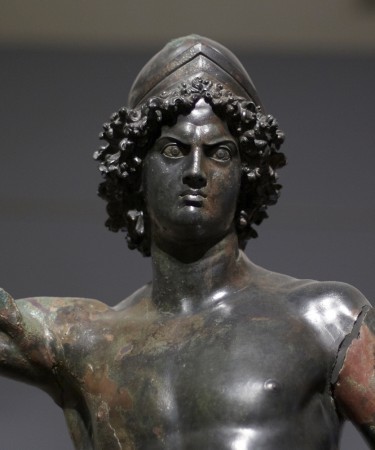
Nos idéologues ne veulent pas voir les choses en face, le refus de s’intégrer de populations qui, souvent, par ailleurs, n’ont que mépris pour notre société décadente, même s’ils rêvent de s’y vautrer : « Les étrangers qui venaient autrefois s’appliquaient à nous ressembler, ils semblent se poser aujourd’hui dans leur altérité. A notre grande surprise, les migrants ne nous voient pas comme la pointe avancée de la mode et de la morale, mais plutôt, au regard de leurs traditions, comme une enclave étrange et déviante. Ceux qui viennent d’au-delà des mers ne sont pas nés sous le signe de notre universalisme » (Hugues Lagrange, Le déni des cultures). Il faut dire que notre société ne fait pas envie. Ce que traduit Richard Millet : « Les immigrés extra-européens désireraient-ils s’assimiler à des vaincus qui aiment leur propre défaite ? ».
Dès qu’on aborde le problème de la délinquance, l’hystérie se déchaîne. Hugues Lagrange l’a appris à ses dépens pour avoir écrit : « Les adolescents éduqués dans des familles du Sahel sont 3 à 4 fois plus souvent impliqués comme auteurs de délits que les adolescents élevés dans des familles autochtones ; et ceux qui sont éduqués dans des familles maghrébines, deux fois plus ». C’est pourtant la vérité.
Mais le résultat, pour les gens qui subissent au quotidien « l’enrichissement des cultures » grâce aux exactions des « chances pour la France », est un sentiment de dépossession. Comme l’écrit Richard Millet : « Jamais je n’aurais pensé me retrouver un jour minoritaire, sur le plan racial, culturel, religieux… faire figure de perdant historique… et devenir quasi maudit : un exilé de l’intérieur ».
Malika Sorel, présidente du Haut-commissariat à l’Intégration, ose dire : « Arithmétiquement, du fait de la stagnation de notre démographie, de l’importance du flux migratoire, de la difficulté de la France à intégrer les nouveaux entrants, on assiste à une diminution du nombre de Français porteurs de l’identité française. Devenir minoritaire sur son propre territoire est un réel problème ».
C’est ce qui va se produire, inéluctablement : « La France laisse venir l’épreuve, en refusant de se confronter à ceux qui rejettent ses valeurs. […] Notre vieux pays aurait-il perdu le goût de se défendre ? » (Ivan Rioufol, Le Figaro du 26 juin 2009).
LE MULTICULTURALISME, PORTE OUVERTE AU COMMUNAUTARISME
Jacques Sévilla : « Sans que l’opinion ait été consultée, la France est vouée à se transformer en pays pluriethnique et pluriculturel. Tout un vocabulaire sacralisé (métissage, diversité, compromis) enrobe ce qu’il faut bien considérer comme une mutation fondamentale dans le cours millénaire de l’histoire de France ». Le rêve de l’ennemi, c’est une France où il n’y aurait plus de Bourguignons, de Gascons, de Catalans ou de Corses, mais des citoyens de toutes les couleurs. C’est une utopie criminelle. La France est devenue un melting-pot où le communautarisme enfle à toute vitesse. Le mythe stupide de la France Black-Blanc-Beur de 1998 a volé en éclats.
L’obsession du « vivre ensemble » occulte, en réalité, l’incommensurable lâcheté de nos dirigeants et leur volonté de supprimer tout ce qui pourrait mécontenter les envahisseurs. Car si les Blancs sont instamment priés de se fondre dans la société multiculturelle, les Algériens, les Comoriens, les Turcs, les Gitans, les Tchétchènes… ont, quant à eux, le droit de vivre leur différence. Quartiers maghrébins, quartiers noirs, quartiers chinois constituent maintenant autant de citadelles où l’autorité de l’Etat a disparu. « Doutant d’elle-même et se cherchant vainement un projet collectif, la nation n’ose même plus imposer son mode de vie et ses valeurs à ceux qui s’installent sur son sol » (Jacques Sévilla).
La France est devenue une poudrière. « Quand on n’a plus la même histoire, le même passé, on n’aime plus le même pays, on ne peut donc plus vivre ensemble » (Dimitri Casali). 37% des jeunes d’origine étrangère ne se sentent pas français.
Partout dans le monde, on respecte le drapeau : aux USA, en Angleterre, en Italie, en Espagne, au Brésil, en Turquie, en Chine. Sauf en France, où il est souvent brûlé. Impunément. Par des étrangers pourtant accueillis généreusement, ou des enfants d’immigrés devenus français par le droit du sol mais qui haïssent la France. Il y avait, depuis longtemps, des signes avant-coureurs : La Marseillaise sifflée lors des rencontres de football, France-Algérie en 2001, France-Maroc en 2007 ou France-Tunisie en 2008.
Les drapeaux de toutes les couleurs qui ornaient la place de la Bastille, le 6 mai de cette année, sont le révélateur sociologique du vivier électoral de la gauche : marocains, algériens, tunisiens, turcs, maliens, ivoiriens, syriens, égyptiens, palestiniens. Seulement un ou deux drapeaux français qui devaient se sentir bien seuls. Quelques jours auparavant, on en avait observé des centaines, si ce n’est des milliers, lors du rassemblement sarkozyste du Trocadéro. Le rassemblement des cocus qui croient que l’UMP et le PS, ce n’est pas la même chose. Mais ces deux spectacles sont la preuve évidente du déchirement de la France : d’un côté, les Gaulois ; de l’autre, les envahisseurs, caressés dans le sens du poil par une gauche qui a abandonné le peuple des ouvriers et des employés, mais qui a trouvé un électorat de substitution.
Tout cela donne la nausée : « Je ne me reconnais plus dans une France multiraciale et multiculturelle où l’immigré ne saurait se nourrir de Montaigne, Bossuet, Voltaire, Proust… et encore moins de l’extraordinaire geste des Croisades et des bâtisseurs de cathédrales » (Richard Millet).
L’ISLAM EST ENTRE EN GUERRE
En France, vous pouvez dire que vous haïssez les chrétiens ou les catholiques, vous pouvez insulter le Pape, vous passerez pour un esprit brillant. Mieux, pisser sur le Christ ou même déféquer sur des symboles chrétiens est assimilé à de l’art. D’ailleurs, les mots « christianophobie » ou « catholicophobie » n’existent pas. Vous pouvez aussi vous en prendre au bouddhisme, au chamanisme, au paganisme, à l’hindouisme…
Mais pour la religion de Mahomet, ce n’est pas du tout pareil. Vous risquez immédiatement de vous faire traiter d’islamophobie. Et à partir de là, gare à la police de la pensée ! Pourtant, comme le dit Jacques Sévilla : « Islamophobie. Ce terme est piégé ; il a pour but de faire de l’islam un objet intouchable, sous peine d’être accusé de racisme. Or une confession n’est pas une race ».
L’islam n’est pas une religion comme les autres. D’abord parce que le Coran s’applique dans le domaine spirituel, mais aussi dans le domaine temporel : contrairement au Christ, il ne fait pas de différence entre Dieu et César. En conséquence, il prétend régir tous les actes de la vie civile, il est un code civil.
Par ailleurs, l’islam est une religion de conquête. Le Prophète l’a clairement exprimé et ce, à plusieurs reprises, appelant ses fidèles à exterminer les chrétiens et à propager l’islam sur la Terre entière : le Dar al-Harb, le territoire de la guerre, qui est appelé à devenir le Dar al-Islam, le territoire de la soumission à Dieu. Ce n’est pas parce que, pendant un siècle, les musulmans se sont trouvés sous la domination européenne que cette guerre s’est arrêtée. « La guerre entre l’islam et la chrétienté… n’a jamais pris fin » (Jean-Paul Roux, Un choc de religions)
Notre pauvre Europe, qui ne croit plus en rien, surtout pas au sacré, et qui ne croit même plus en elle-même, se voit prise en tenaille : « Comment l’islam n’établirait-il pas son triomphe sur les débris du christianisme et de nations qui meurent de ne plus oser être elles-mêmes, l’alliance entre l’islamisme et le capitalisme américain signalant la redistribution des compétences territoriales dans une Europe partagée entre les intérêts américains et ceux des monarchies arabes, en attendant les Chinois ? » (Richard Millet)
L’islamisation rampante de notre société est en cours d’accélération. Il y avait 10 000 musulmans en France en 1905, ils sont aujourd’hui plus de sept millions, ce qui représente 8 à 10% de la population. Au train où vont les choses, avec le vieillissement de la population gauloise et l’extraordinaire vitalité démographique des envahisseurs, les musulmans représenteront 20% de la population dès 2020. A Roubaix, les musulmans représentent 50% de la population, 25% à Marseille, 12% à Lyon. A Roubaix, il n’y a plus une seule boucherie non halal et la dernière boulangerie gauloise a fermé ses portes. « Nous sommes tenus de supposer que la présence de millions de musulmans parmi nous est sans conséquence politique ou spirituelle… Il s’agit pourtant de la plus énorme transformation de la substance européenne depuis des siècles » écrit le philosophe Pierre Manent dans Les métamorphoses de la cité.
Parallèlement, la pression islamique ne cesse de se renforcer. Il y avait 5 mosquées en France en 1965, on en dénombre aujourd’hui entre 2 100 et 2 500 (on ne sait même pas exactement). « Dans les banlieues, ceux qui faisaient le siège des municipalités en vue d’obtenir des terrains de sport réclament dorénavant des mosquées » (Jacques Sévilla).
« En Europe aujourd’hui, les musulmans reconstituent l’oumma à travers le communautarisme, et cela avec l’aide des pouvoirs publics aveugles sur les dangers qui peuvent en résulter » (Annie Laurent, L’islam et la personne humaine). Une armée de collabos, des dhimmis avant l’heure, lui facilitent la tâche. Par lâcheté ou par calcul électoral, les maires des grandes villes rivalisent : c’est à qui construira la plus belle mosquée. Tous les domaines de la vie séculière font l’objet d’attaques : viande halal, menus particuliers dans les cantines scolaires, horaires sexistes dans les piscines et les salles de sport, nombre grandissant de femmes voilées, voiles de plus en plus couvrants (niqab, tchador, burqa), violences sexistes dans les hôpitaux, contestation des programmes scolaires, exigence de jours fériés musulmans, horaires adaptés à l’occasion du ramadan, etc.
Oui, c’est bien d’une invasion qu’il s’agit, c’est bien d’une guerre qu’il s’agit. « L’islam s’est lancé à la conquête de l’Europe, et seuls les aveugles et les collaborateurs le nient » (Richard Millet). Les islamistes ne sont que les éclaireurs de cette opération de conversion forcée qui attend les Européens, s’ils ne réagissent pas. Les musulmans dits « modérés », dans leur immense majorité, soutiennent leurs frères engagés dans le djihad, la « guerre sainte ». Chaque vendredi, les imams des mosquées, dont beaucoup sont étrangers et ne parlent même pas notre langue, leur bourrent le mou. Et il suffit de regarder le recteur de la mosquée de Paris, Dalil Boubakeur, ou l’imam de Drancy, Hassen Chalghoumi, se tortiller dans tous les sens, pour condamner, sans condamner, mais tout en excusant, les saloperies de leurs frères intégristes, pour se rendre compte de l’énorme hypocrisie avec laquelle ils essaient de nous enfumer.
Saluons donc le courage de Charlie Hebdo. Nous n’avons rien à voir avec les rédacteurs de ce journal ordurier, mais il faut reconnaître que, dans ces affaires de caricatures, « ils en ont », comme aurait dit Hemingway. Certains objecteront qu’ils mettent de l’huile sur le feu. Ces derniers sont déjà des dhimmis : ils ont déjà baissé leur froc pour se faire sodomiser.
CONCLUSION
Voici donc un effroyable tableau de la France d’aujourd’hui. Qu’on peut étendre à l’Europe occidentale tout entière, bien qu’à un degré moindre, car la France est dans l’état de décomposition le plus avancé. Il y aurait de quoi désespérer. Et cesser de se battre. Ce n’est pas notre genre. Comme écrivait Charles Maurras : « Le désespoir en politique est une sottise absolue ». Une autre manière de dire : « Tant qu’il y a une volonté, il y a un chemin ».
Car, tout n’est peut-être pas perdu. Certains sondages montrent que le vieux fonds gaulois existe toujours. 82% des Français estiment qu’il y a une identité nationale française et 65% pensent qu’il y a un réel affaiblissement de l’identité nationale à cause de l’immigration, de la perte des valeurs et de la diversité culturelle et ethnique. Le pouvoir commence à reculer. Notamment sur le droit de vote des étrangers. Il paraît qu’avant les élections 60% des Français étaient pour. Aujourd’hui, la courbe s’est inversée : ils sont contre à plus de 60% (86% des sympathisants de l’UMP). Quant au mariage homosexuel, son avenir n’est pas aussi « gay » que certains l’imaginaient encore, il y a quelques semaines : 74% des sympathisants de l’UMP sont contre. On est loin des 55% d’opinions favorables issus d’un sondage douteux effectué par un institut dont on sait qu’il est aux mains d’un lobby homosexuel américain (Gallup, pour ne pas le nommer).
Si l’on raisonne en termes gramscistes, il semblerait que le pouvoir politique et la société civile soient en cours de rupture. Nous sommes sans doute en période prérévolutionnaire. Deux bouleversements majeurs sont en cours de gestation.
Le premier est l’effondrement du système économico-financier mondial. Le capitalisme sans frein, tel qu’on le subit depuis des décennies, n’en a sans doute plus pour longtemps. On nous dit que la crise que nous vivons est plus grave que celle de 1929. Quand on cessera de faire l’autruche, on se rendra compte que ses conséquences seront au moins aussi grandes. L’Amérique d’Obama ou de Romney ne pourra plus vivre encore longtemps à crédit sur le dos des autres peuples de la Terre. En Europe, la politique monétariste de l’UE est en train de tuer les économies européennes. Non seulement la croissance ne redémarrera pas, mais une forte récession va s’installer durablement, avec ses conséquences inévitables : étouffement par l’impôt, baisse des salaires, des retraites et des allocations, régression du niveau de vie, augmentation du chômage, installation de la misère. Nous n’avons encore rien vu : les foules en colère qui descendent dans les rues d’Athènes, Madrid et Lisbonne, ne sont que les éclaireurs des masses furieuses qui, bientôt, casseront tout par désespoir.
Le second est l’inexorable guerre ethnico-religieuse qui nous attend. Elle a d’ailleurs déjà commencé. En France notamment. « L’exacerbation des rancœurs et des haines anciennes ne peut déboucher que sur des affrontements frontaux et, peut-être même, dégénérer en véritable guerre civile » (Dimitri Casali).
Quelques exemples récents :
- Dans le seul mois de septembre, une vingtaine de profs se sont fait casser la figure par de charmantes petites têtes plus ou moins métissées ;
- Le dimanche de Pentecôte, des fidèles se sont fait caillasser à la sortie de la cathédrale de Carcassonne par de gentils petits musulmans qui voulaient sans doute jouer avec eux ;
- Une horde de « chances pour la France » a attaqué à coups de barres de fer et de couteaux une soixantaine de parachutistes du 8ème RPIMa à Castres ;
- Sur le marché de Nîmes, des marchands forains ont vu leurs étals de charcuterie et de vin détruits par une meute de musulmans, des « modérés » sans doute ;
- A Marseille, des Maghrébins font la chasse aux Roms et brûlent leurs campements (heureusement que ce n’étaient pas des Gaulois : que n’aurait-on entendu ?) ;
- A Toulouse, lors des « Soirées Nomades », la projection au sol de « calligraphies coraniques » de Mounir Fatmi dégénère; une roumie qui a osé marcher sur « le Coran », est violemment giflée ;
- A Echirolles, deux « jeunes », l’un noir, l’autre maghrébin, sont massacrés à coups de couteaux par leurs frères de sang (même remarque que ci-dessus) ;
- Dans des dizaines de « zones de non-droit » (terme qu’il ne faut plus utiliser : c’est du défaitisme), pompiers et policiers tombent dans des guets-apens où on leur balance des machines à laver sur la tête, quand on ne leur tire pas carrément dessus (pour le moment avec du petit calibre, mais bientôt à l’arme de guerre) ;
Voulez-vous que je vous dise ? Ce pays, mon pays, ressemble à la Yougoslavie du début des années 1980, un pays que j’ai bien connu pendant les années de guerre. Vous connaissez la suite. Ces deux catastrophes sont inexorables. Dans quel ordre, on ne sait pas. Ni à quelle échéance. Le propre de toute révolution est d’être imprévisible. Alors, il faut se préparer au pire. Car vous ne pouvez compter ni sur la gauche de Flanby, ni sur la droite des moutons pour affronter ces combats de titans. L’heure n’est donc plus à l’attentisme. La société de demain se construit aujourd’hui. N’oubliez pas vos enfants et vos petits-enfants. Demain, il sera trop tard. Ils vous diront simplement : « Qu’avez-vous fait pour empêcher cela ? ».
Comme tous les peuples de la Terre, sachons nous faire respecter sur notre terre. Gaulois, maîtres chez nous !
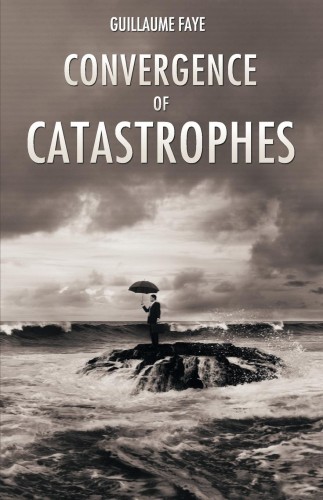 For the first time in its history, humanity is threatened by a convergence of catastrophes.
For the first time in its history, humanity is threatened by a convergence of catastrophes.



 del.icio.us
del.icio.us
 Digg
Digg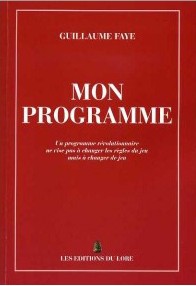 Et yndet argument mod dem, der ønsker befolkningsudskiftningen og globalismen tilbagerullet, er, at det er urealistisk eller ganske enkelt ikke kan lade sig gøre. Det har derfor stor værdi, at den franske filosof Guillaume Faye nu for sit eget lands vedkommende har skrevet et meget konkret og udførligt program for national genopretning med undertitlen: ”Et revolutionært program, der ikke skal ændre spillets regler, men ændre selve spillet.”
Et yndet argument mod dem, der ønsker befolkningsudskiftningen og globalismen tilbagerullet, er, at det er urealistisk eller ganske enkelt ikke kan lade sig gøre. Det har derfor stor værdi, at den franske filosof Guillaume Faye nu for sit eget lands vedkommende har skrevet et meget konkret og udførligt program for national genopretning med undertitlen: ”Et revolutionært program, der ikke skal ændre spillets regler, men ændre selve spillet.”



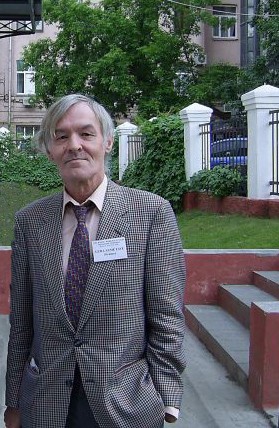 Un blog avec les articles de Guillaume Faye en espagnol:
Un blog avec les articles de Guillaume Faye en espagnol:
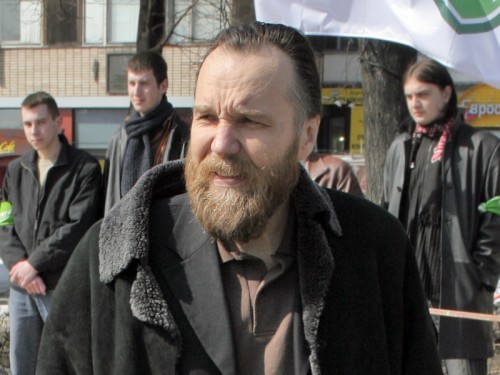







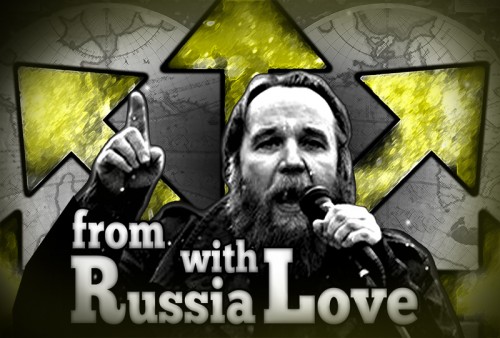
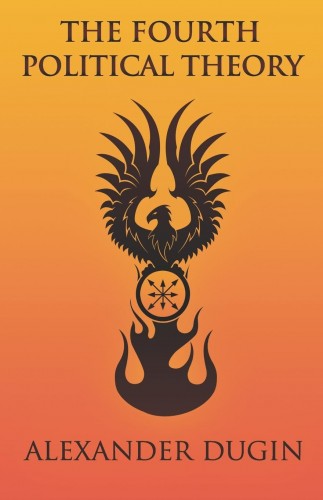 Despite past attempts by the Second and Third Theories to claim the crown of modernity, Dugin believes that Liberalism has triumphed here and has managed to irrevocably present itself as the only truly “modern” way. It has also succeeded in presenting itself as the “natural order,” rather than a mere ideology.
Despite past attempts by the Second and Third Theories to claim the crown of modernity, Dugin believes that Liberalism has triumphed here and has managed to irrevocably present itself as the only truly “modern” way. It has also succeeded in presenting itself as the “natural order,” rather than a mere ideology.
 La décennie 1960, et particulièrement Mai 68, fut un désastre spirituel et culturel. La volonté de l’intelligentsia subversive qui prit les commandes du pouvoir culturel à ce moment-là et ne l’a plus quitté, est de déstructurer à la fois la société, en sapant l’autorité, en combattant toute hiérarchie, en inversant les valeurs, et l’individu, en effaçant sa mémoire, en le coupant de ses origines, en brisant sa culture.
La décennie 1960, et particulièrement Mai 68, fut un désastre spirituel et culturel. La volonté de l’intelligentsia subversive qui prit les commandes du pouvoir culturel à ce moment-là et ne l’a plus quitté, est de déstructurer à la fois la société, en sapant l’autorité, en combattant toute hiérarchie, en inversant les valeurs, et l’individu, en effaçant sa mémoire, en le coupant de ses origines, en brisant sa culture.
 De l’autre, une minorité qui se situe ailleurs, – et que nos ennemis aiment stigmatiser par le terme d’extrême-droite, quand ce n’est pas de fascisme -, et qui rassemble les identitaires, les nationalistes, les monarchistes, les souverainistes, les catholiques traditionnalistes, les solidaristes… pour lesquels la nation est une patrie charnelle, c’est-à-dire qu’elle est à la fois une Terre et un Peuple. Car les racines de notre pays s’inscrivent dans un long processus historique qui plonge dans une très longue mémoire. Comme l’écrivent :
De l’autre, une minorité qui se situe ailleurs, – et que nos ennemis aiment stigmatiser par le terme d’extrême-droite, quand ce n’est pas de fascisme -, et qui rassemble les identitaires, les nationalistes, les monarchistes, les souverainistes, les catholiques traditionnalistes, les solidaristes… pour lesquels la nation est une patrie charnelle, c’est-à-dire qu’elle est à la fois une Terre et un Peuple. Car les racines de notre pays s’inscrivent dans un long processus historique qui plonge dans une très longue mémoire. Comme l’écrivent : Mais la matière la plus torturée par nos idéologues est l’Histoire de France. « C’est le Passé (l’Histoire) qui fonde l’avenir, or les maîtres du présent peuvent réinventer l’Histoire » (George Orwell, 1984).
Mais la matière la plus torturée par nos idéologues est l’Histoire de France. « C’est le Passé (l’Histoire) qui fonde l’avenir, or les maîtres du présent peuvent réinventer l’Histoire » (George Orwell, 1984).
